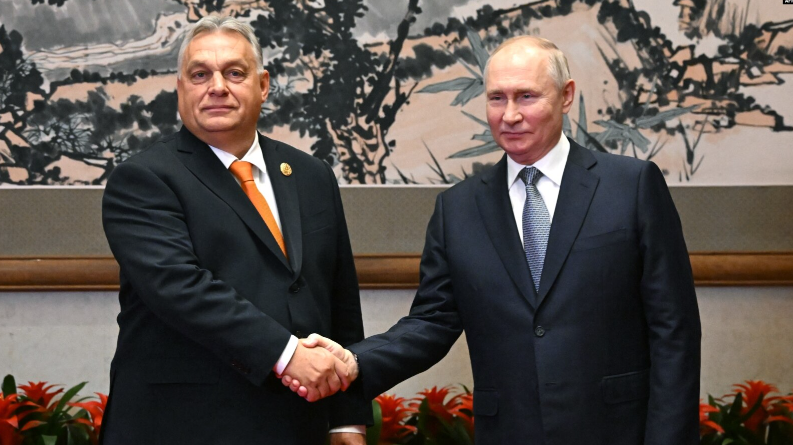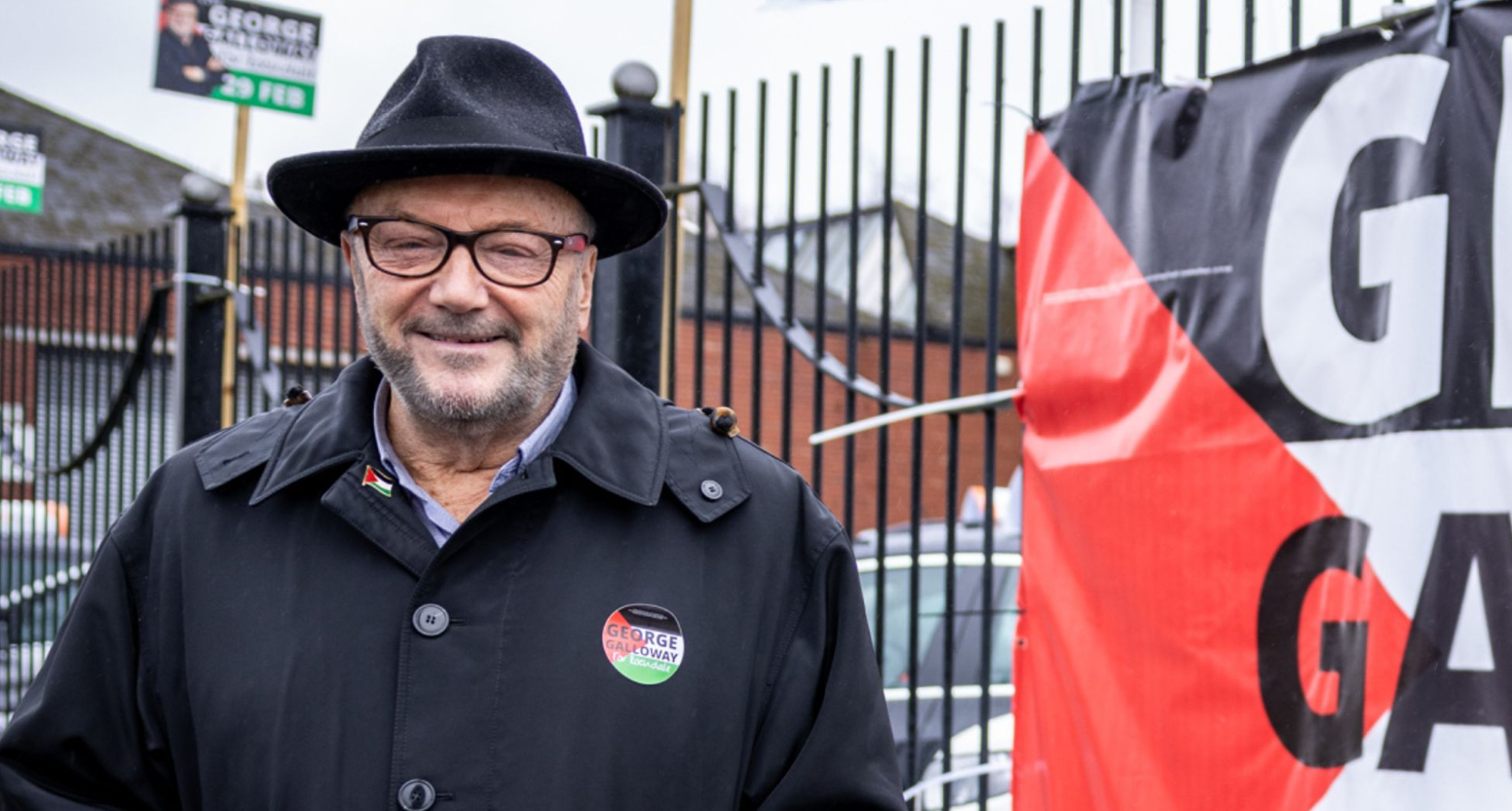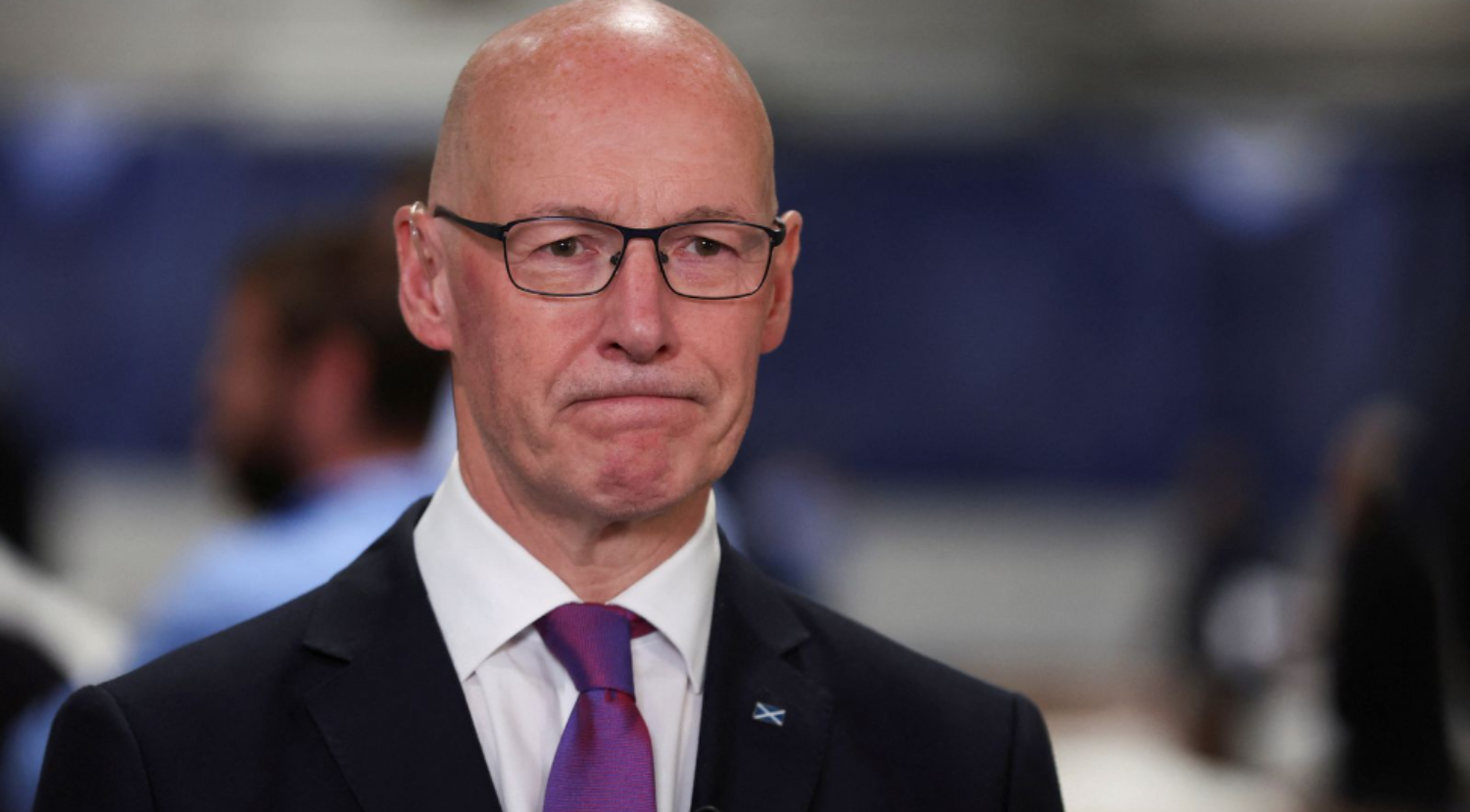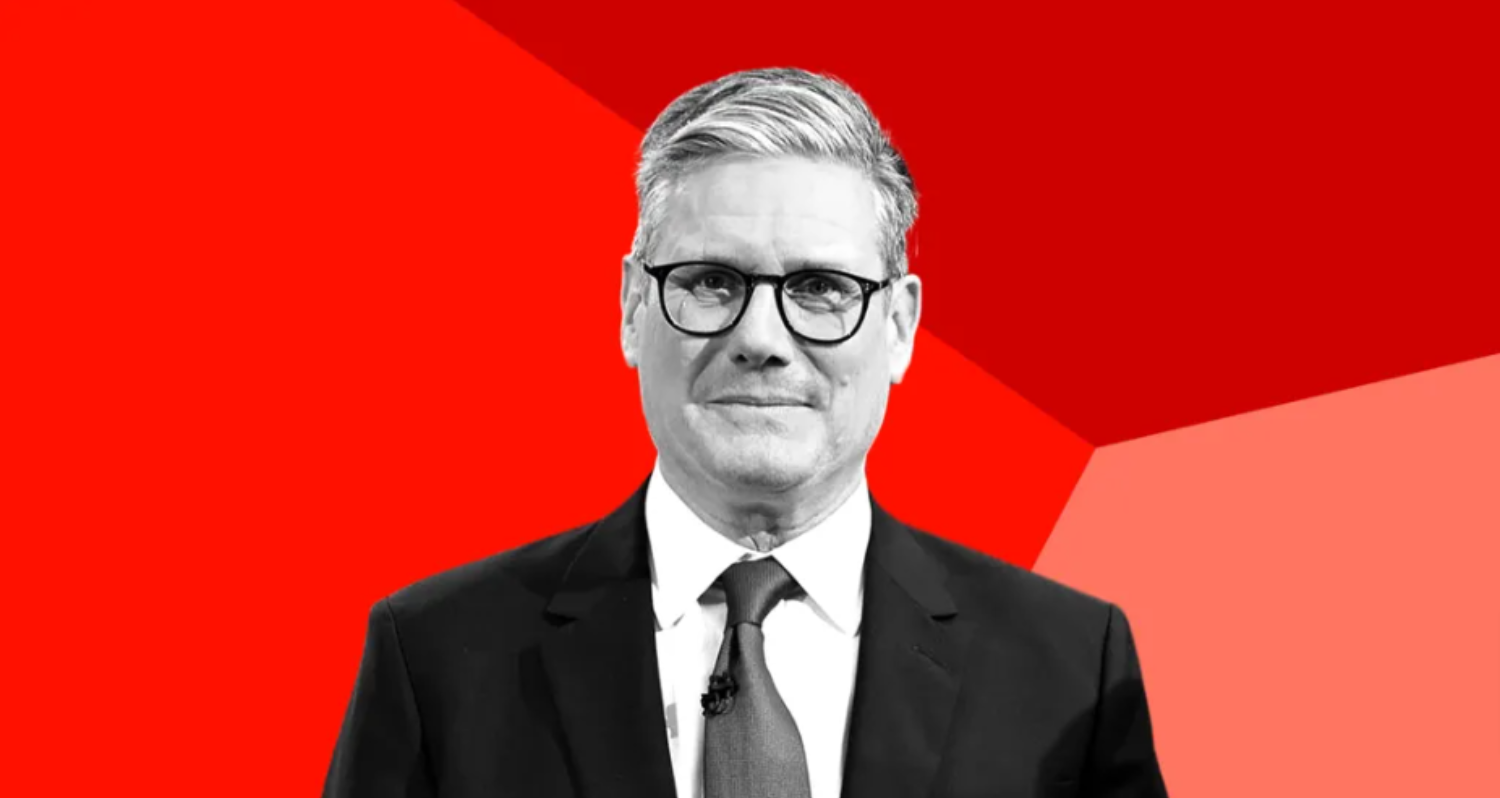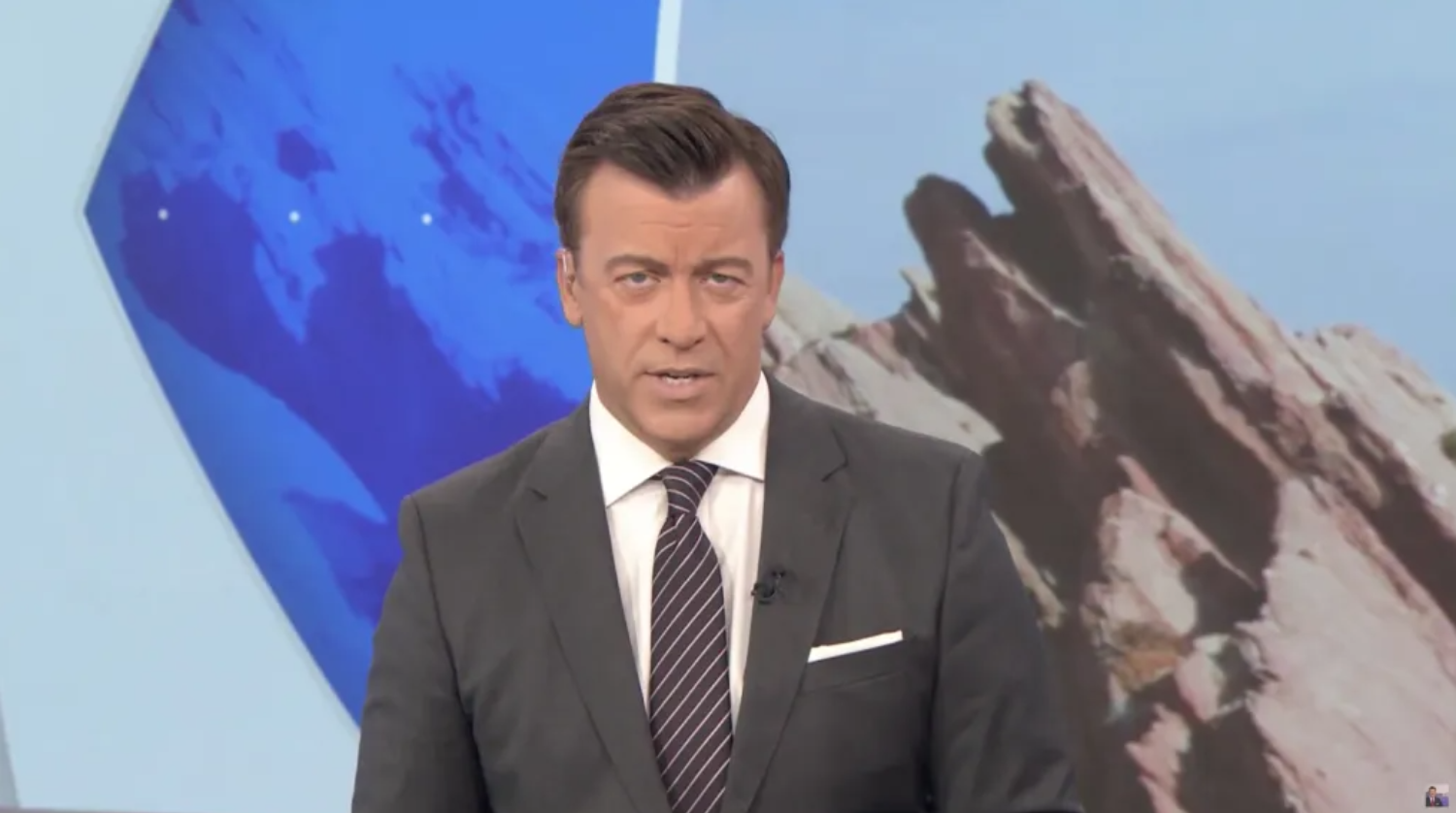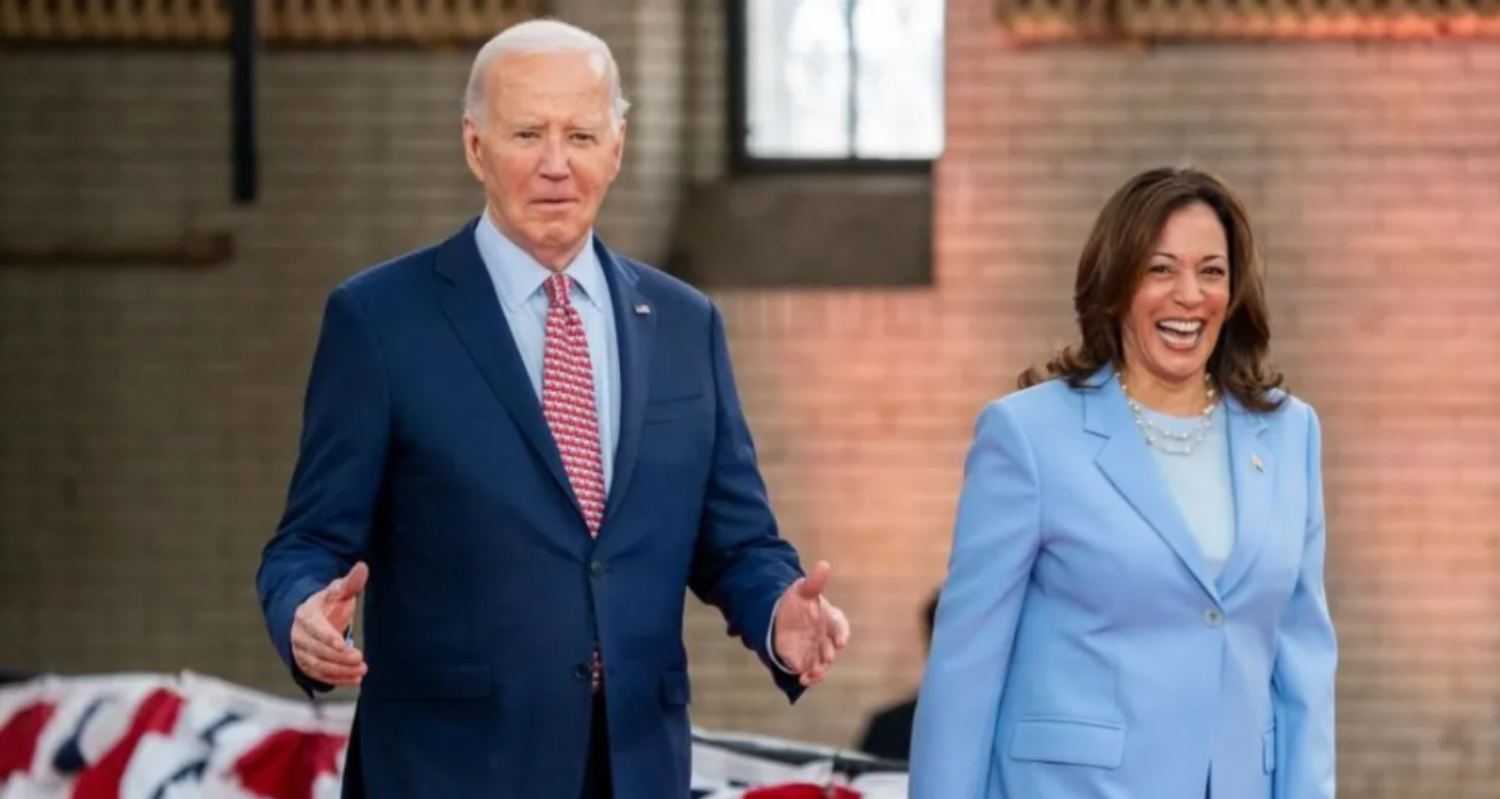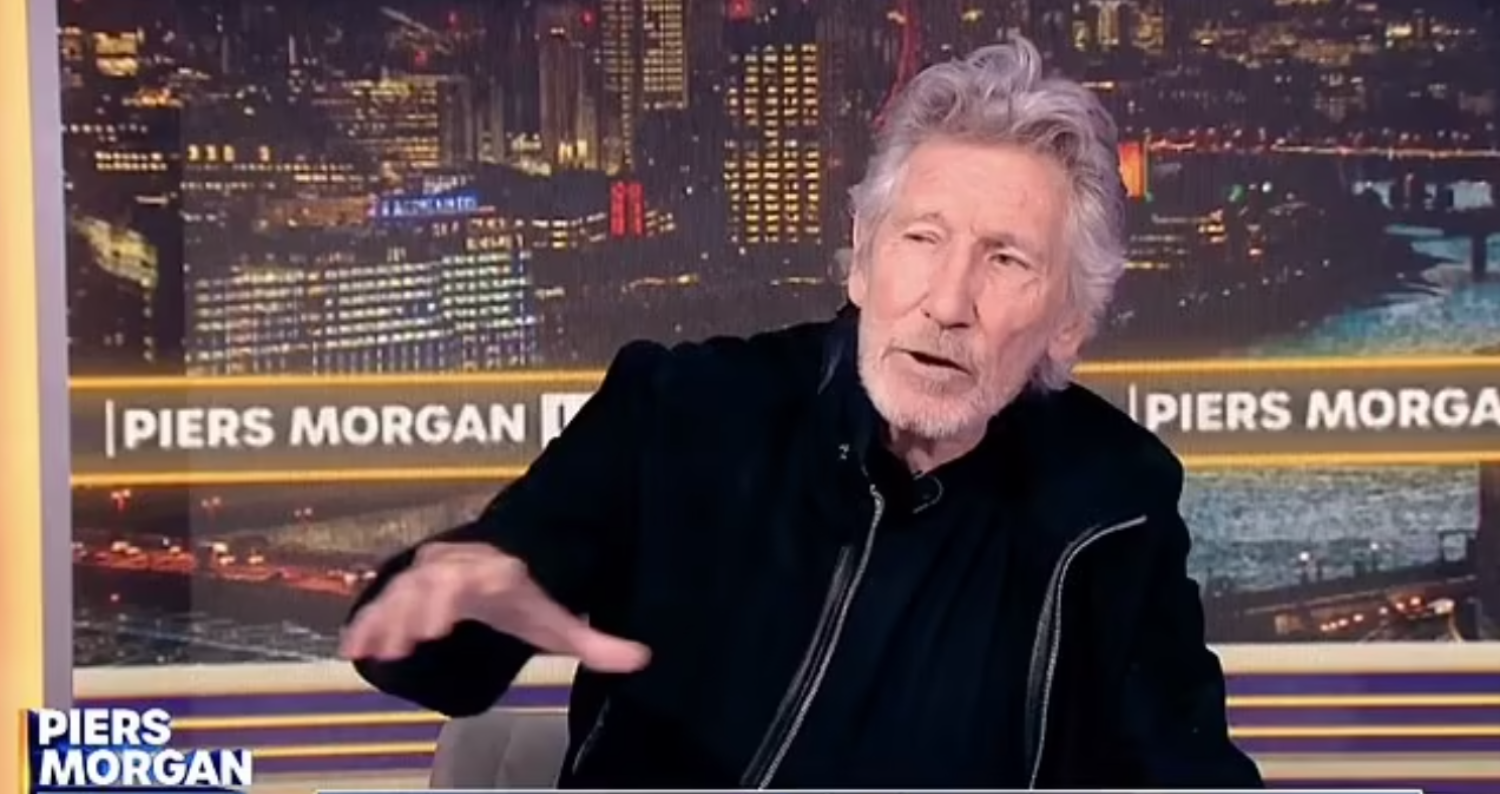-
Posts
10,086 -
Joined
-
Last visited
Content Type
Events
Forums
Downloads
Quizzes
Gallery
Blogs
Everything posted by Social Media
-
French voters are heading to the polls for the third time in a month, with the nation on high alert as the far-right National Rally (RN) might seize control of the government. This possibility seemed highly likely after the first round of voting, but has since diminished due to strategic candidate withdrawals in about 200 constituencies, aimed at concentrating the anti-RN vote. However, these projections are uncertain, as the extent to which voters will follow their party leaders' directives remains unclear. In order to form an anti-RN barrier, many centrist voters will have to support the far left, particularly the New Popular Front, despite their disdain for them. Similarly, many left-wing voters will have to back the Macronites, whom they also despise. Meanwhile, the far-right vote could be energized by the perception that the RN, now the largest party in France, is once again being kept from power by an establishment conspiracy. The ultimate outcome will only be determined at the end of the day. The big question remains: how likely is it that France will wake up on Monday morning with a far-right government? This dramatic scenario has dominated media headlines, discussions in the EU in Brussels, and conversations in government offices across Europe following the first round of France’s parliamentary vote last week. Despite the impressive performance of Marine Le Pen’s RN, the short answer is that an RN majority is possible, though not probable. French centrist and leftist parties have strategically withdrawn candidates to support each other’s contenders ahead of the decisive second round on Sunday. Regardless of the RN's success in securing an outright majority, the impact of this election will be significant. Jordan Bardella, the RN's young, social media-savvy president, might not become France’s new prime minister, but RN is almost guaranteed to win more seats than any other political grouping. This means a long-standing taboo in France, a core EU nation, will be broken. The EU, born out of the aftermath of World War Two as a peace project, with France and Germany at its core, has traditionally kept far-right parties on the fringes of European politics. Last month, world leaders gathered in northern France to commemorate the 80th anniversary of D-Day, the allied amphibious assault in Normandy that contributed to the defeat of Nazi Germany. Yet today, far-right, hard-right, or populist nationalist parties are part of coalition governments in several EU countries, including the Netherlands, Italy, and Finland. Labeling these parties is challenging because their policies often change and vary by country. This normalization of far-right parties isn't entirely new. Former Italian Prime Minister Silvio Berlusconi, a center-right politician, was the first EU leader to form a government with a post-fascist political group, Movimento Sociale Italiano, in 1994. Six years later, Austria’s conservatives entered into a coalition with the far-right Freedom Party, causing the EU to block official bilateral contacts with Austria for several months. Post-war political etiquette dictated that the political mainstream should form a "cordon sanitaire" to keep the extreme right out of European governments. This practice is so strongly associated with France that the term itself is French, illustrating the nation's strong feelings about it. In the 2002 Presidential election, some French voters even symbolically clipped clothes pegs to their noses while voting for a candidate they disliked just to keep out the far right. This far right was once led by Marine Le Pen’s father, who had former members of a Nazi-led Waffen SS unit in his party ranks. Fast forward to 2024, and Marine Le Pen’s decade-long effort to detoxify her father’s party—changing its name and working to improve its image—appears to have succeeded. The cordon sanitaire has been significantly breached after the leader of France’s center-right Les Républicains struck a deal with the RN to not compete against each other in certain constituencies. This is a political earthquake in France. Crucially, Le Pen’s supporters are no longer embarrassed to admit their allegiance. The RN is no longer seen as an extremist protest movement but as offering a credible political program, despite criticism. French voters now trust the RN more than any other party to manage the economy and public finances, according to an Ipsos poll for the Financial Times, despite the party's lack of government experience and largely unfunded tax-cutting and spending plans. This begs the question: if traditional lawmakers had better served their electorates, perhaps European populists would have less of an opening. Populists like Le Pen claim to represent "ordinary people" against "the establishment," a narrative that resonates when voters feel anxious and ignored by those in power. Similar patterns can be seen with Donald Trump in the US, the unexpected breakthrough of Reform UK in the recent UK election, and the success of Germany’s controversial anti-migration AfD party. In France, many perceive President Macron as arrogant, privileged, and disconnected from the everyday lives of ordinary people outside the Paris bubble. His efforts to lower unemployment and spend billions to mitigate the economic impacts of the Covid and energy crises seem largely forgotten. Meanwhile, the RN focused its campaign on the cost-of-living crisis, promising to cut taxes on gas and electricity and raise the minimum wage for low earners. Such priorities lead RN supporters to argue that the party should no longer be labeled far-right, pointing to a growing support base and distancing from its racist roots under Le Pen senior. A similar argument is heard from Rome, where Italy’s Prime Minister Giorgia Meloni, once a supporter of fascist dictator Benito Mussolini, now leads a stable EU government. She has publicly condemned fascist salutes and emphasized that her party has no place for nostalgia for totalitarian regimes. Despite criticism at home for her stance on LGBTQ+ rights and media influence, her proposals on irregular migration have won praise from mainstream European figures, including EU Commission chief Ursula von der Leyen and the UK’s recently ousted prime minister, Rishi Sunak. On contentious issues like migration, it is increasingly difficult to distinguish between the rhetoric of the far right and that of traditional mainstream politicians who are sharpening their speeches to retain voters. Examples include former Dutch Prime Minister Mark Rutte and Macron, who have both adopted tougher stances as right-wing popularity grows. This mainstream mimicry inadvertently legitimizes anti-immigration parties, making them appear more respectable and electable. Geert Wilders' recent success in the Netherlands is a testament to this trend. The label "far right" is complex and context-dependent, varying with each party's composition and policies. While Meloni has gained broader acceptance, Le Pen's RN still struggles with full international legitimacy. The RN believes a parliamentary majority is still possible this Sunday, but more likely outcomes include a hung parliament or a coalition government excluding Le Pen's party. Any of these scenarios would significantly weaken Macron's presidency. Political instability in France and Germany during a time of global uncertainty, with wars in Gaza and Ukraine and the potential return of EU and NATO skeptic Donald Trump, leaves Europe without strong leadership. Voters feel exposed and vulnerable. Regardless of the immediate outcome, Le Pen's supporters are confident that their time is coming soon. Credit: BBC 2024-07-08 Get our Daily Newsletter - Click HERE to subscribe
-
In the 22-minute interview, which George Stephanopoulos said had not been edited, Biden repeatedly indicated he doesn’t need a cognitive exam, arguing that he undergoes one “every single day” as president, and that his physicians have never indicated he needs one. He also denied any increased frailty since the 2020 campaign. Biden acknowledged “some” Democrats may want him out of the race but refused to get into any discussion about a potential scenario in which Democrats push him out: “It’s not going to happen.” “If the Lord Almighty came down and said, ‘Joe, get out of the race,’ I’d get out of the race,” he said. “The Lord Almighty’s not coming down.” In what may be an alarming moment for other Democrats, Biden refused to acknowledge that he’s trailing Trump and likened the panic among Democrats today to the fear in 2020 that Biden would lose to Trump. Credit: ABC 2024-07-06 Get our Daily Newsletter - Click HERE to subscribe
-
In a move that has generated significant controversy within the European Union, Hungarian Prime Minister Viktor Orban traveled to Moscow for a meeting with Russian President Vladimir Putin. This visit comes just days after Orban's trip to Kyiv, where he met with Ukrainian President Volodymyr Zelensky. The visit, described by Orban's spokesman Zoltan Kovacs as a "peace mission," aims to foster peace negotiations between Russia and Ukraine, a proposal Ukrainian leaders have firmly rejected due to concerns that Putin would only seek Ukraine's capitulation. Orban's journey marks the first official visit by an EU leader to Russia since the early months of the Ukraine invasion. Austrian Chancellor Karl Nehammer made a similar trip in April 2022. For Orban, it was his first face-to-face meeting with Putin since their encounter in October 2023 on the sidelines of an international summit in Beijing. The timing of Orban's visit is particularly contentious as Hungary has just taken over the European Union's rotating presidency. German Chancellor Olaf Scholz expressed his surprise, noting that he had not been informed of Orban's plans and emphasizing that Orban was not representing the European Union. Josep Borrell Fontelles, the EU's top diplomat, clarified that Orban's visit was strictly within the bilateral relations of Hungary and Russia, asserting that Orban was not acting on behalf of the EU. The unannounced nature of the trip, revealed only after Orban's plane landed in Moscow, further fueled the dismay among EU officials. Charles Michel, president of the European Council, stressed that the EU rotating presidency does not have a mandate to engage with Russia on the EU's behalf, reiterating that Russia is the aggressor in the conflict and that Ukraine is the victim. He emphasized that any discussions about Ukraine must involve Ukraine directly. Polish Prime Minister Donald Tusk also took to social media to address Orban, expressing disbelief and concern over the visit. The general stance among Western leaders has been to avoid meetings with Putin since the invasion of Ukraine in February 2022, aiming to isolate him on the international stage. However, leaders outside the West, including China’s Xi Jinping and India's Prime Minister Narendra Modi, have continued to engage with Putin. Orban's Moscow visit underscores the deep divisions within the EU regarding the approach to Russia and the ongoing conflict in Ukraine. While Orban claims to be pursuing peace, the broader EU consensus remains focused on supporting Ukraine and condemning Russian aggression. This discord highlights the complexities and challenges the EU faces in maintaining a unified front in its foreign policy and its stance on the Ukraine conflict. Credit: NYT 2024-07-06 Get our Daily Newsletter - Click HERE to subscribe
-
If you watch shows such as “Emily in Paris,” you can be forgiven for thinking the world is enchanted by Americans who travel abroad. Silly gaffes, like mistaking a public urinal for a monument and taking selfies in front of it, come across as charming quirks on television. However, as a single American woman who moved to Europe and made a lot of faux pas of my own, I can assure you that the real world is definitely not amused. It’s a hard pill to swallow, but sadly, we’ve gained a reputation around the world for being, well, “stupid Americans.” Is it offensive? Yes. Could we get upset about it? Sure. But with tens of millions of Americans traveling abroad every year, the likelihood is that you’ll encounter us wherever you are in the world. Therefore, our reputation is completely understandable. The reality is, we all do “stupid” things, especially when we are in foreign places and we don’t know the local customs, cultures, or surroundings. No one is immune from this humiliation, not even genius scholars. However, smart travelers know that doing “stupid” things abroad can not only be disrespectful and embarrassing, but it can put you at risk of being arrested, hurt, or the victim of crime. That’s why, instead of letting labels upset me, I choose to focus on how I can become a master traveler. After 20-plus years of exploring the world, I think I’ve managed to crack it. So, here are my top tips on how you can avoid the “stupid American” stereotype and become a “Smart American” abroad. One of the first things you need to master is reading social cues. People in most countries are extremely polite. They would never tell you that what you are doing is offensive or socially unacceptable. Instead, they will most likely smile and nod, before quickly changing the topic, running away, or ghosting you. This behavior definitely makes for a very civilized society, but if you’re a tell-it-like-it-is New Yorker like me, it can be very hard to pick up on social cues. For years, I foolishly thought that what I was saying or doing was of genuine interest to those around me. I had no idea that I was embarrassing myself and chasing people away. As you meet people abroad, try to notice if they are genuinely interested (for example, asking lots of follow-up questions, making eye contact, building on your stories, asking to join in, etc.), or if they are just being polite. If your Spidey sense starts to tingle, it’s probably time to change the subject or move on to a new activity. Another important aspect is keeping the volume down. It is very true that most Americans have a wonderful zest for life. We don’t think twice about gabbing away with friends (or strangers) on public transportation or laughing whole-heartedly at the dinner table. That’s just our way of being friendly. However, in many places around the world, speaking loudly is considered extremely rude and highly uncommon. It’s not unusual to visit major cities and see people traveling in complete silence while on a packed train. You’ll also notice that you can’t hear the conversation at the table sitting directly next to you in a restaurant. When I first moved to Europe, people would regularly ask, “Why are you shouting?” I was always shocked. I was just using my normal speaking voice! I didn’t think I was being loud at all. Turns out, I was indeed shouting, at least relative to everyone else around me (imagine how traumatized they’d all be if I did actually shout). Over the years, I’ve learned to become more aware of my surroundings and to control my volume level accordingly. It’s a skill I will always struggle with, as my default level is apparently a nine out of ten to most, but it’s also a skill that has had a major positive impact on my business, romantic, and personal relationships. Don’t get me wrong, when I’m home in New York, I let it all out and no one even notices. However, when I’m traveling abroad, I’m always careful to keep it to what feels like a quiet whisper. Blending in is another key strategy. Normally, I’m all for originality and standing out in a crowd. However, when you’re traveling abroad, even to a place you know well, standing out is like wearing a flashing sign that says, “I’m a tourist, come take advantage of me!” Whether it’s pickpockets, grifters, or someone more nefarious, there are always bad actors lurking about, looking for fresh prey. Unfortunately, criminals can often spot an American a mile away by either their accent (another reason to keep the volume of your voice down) or their fashion (khakis, golf shirts, sneakers, baseball hats, and white socks are usually dead giveaways). The moment these predators know you’re from out of town, they will pounce. That’s why it’s smart to blend in with the locals and avoid drawing any sort of attention to yourself. Not only will it make you a smart American, it’ll also make you a safer American. Being curious is a wonderful trait to develop. No one likes a know-it-all. That’s why one of the best ways to win people over and skyrocket your knowledge is to be curious. Be a sponge and absorb as much new information as possible. Being genuinely interested in a country, its people, its culture, and everyday life is one of the most flattering ways to show respect and connect with a community. Judge Judy always says, “You have two ears and one mouth for a reason.” In other words, listen twice as much as you talk. If you can listen without feeling the need to talk about “how we do things back home” or show off all the things you read in a book, then you will make friends everywhere you go. In fact, the more questions you can ask, the more people will think you’re intelligent! No one expects you to know everything. It’s attractive when you can say, “I don’t know about this, please tell me more.” It shows humility and opens the door for others to share their wisdom and stories with you, which will always help you grow. So, try to forget everything you know, open your mind, and be curious. If you do, people will respond with kindness, appreciation, and believe that you are very wise. Being street smart is essential for any traveler. Every city has its own scams, and it’s important for you to read up on what the most common scams are in the area you’re visiting before you travel so that you can be street smart. One of the most popular scams is when a taxi driver takes the “long way” to get you to your destination, racking up quite the bill. Not every city has Uber. Local taxi drivers instantly know whether you’re from the area or not, simply by the way you make your request when you enter their vehicle. When I traveled to Rome for the first time, I got into a cab and asked the driver, “How much to get to this hotel?” He replied, “80 euros.” I immediately told him to stop. I removed my bags, which made him very angry, and exited his car. I then called the hotel and asked the same question. They told me it would be no more than five euros. The next taxi I entered, I told the driver, “Please take me to this hotel. It’s just down the road so should only be around five euros, right?” He replied, “Yes,” and we were on our way. By letting him know I wasn’t a “stupid American,” we were all able to live happily ever after. The point of this story is do your homework. Get an idea of prices for taxis, food, charges, tipping, etc., ahead of time so you don’t get ripped off or taken advantage of. Know the local scams and know how to reject people who approach you with their games. And most of all, don’t let your excitement to be in a new place lure you into a false sense of security. Be careful about meeting new people, especially from dating apps. Stranger danger is real. Reading the news is a habit every traveler should adopt. America is so vast that the news tends to focus on what’s going on locally in each state, with a touch of what’s happening across the rest of the country. However, it rarely features international news. As a result, many Americans often have little to no knowledge of what’s going on around the world, thus unfairly adding to the “stupid American” stereotype. Luckily, there is a fast and easy remedy. If you’re planning to travel abroad, simply read the news headlines of the country you’re visiting before you travel. You don’t need to know the country’s full history, but it will help tremendously if you know the basics: Who is the current president or prime minister of the country? What are the hot topics and major headlines? What is the country’s national sport and how is their team doing? Where is the country located on a map, and what countries surround it? Having this information available at your fingertips will not only make you look well-informed, it will help you avoid being left out of conversations. Learning some of the language is another important step. Do you need to be fluent when you go abroad? Not at all. Do you need to learn the basics? Yes, absolutely. Most major cities will have plenty of English speakers, but they won’t always be around when you need them. Whether it’s an emergency or just being able to order from a menu, it’s important for you to know some basic words and phrases to get you through the day. I recommend you start with: “Hello,” “Goodbye,” “Thank you,” “Please,” “Help,” “Sorry,” “I don’t speak ___,” “I’m allergic to ___,” “I would like to go to ____,” “Where is ___,” and a smattering of your favorite foods. Sure, there are apps that can help, but memorizing these phrases will go a long way, not just with communication but also with cooperation. Even if you butcher the words, most people deeply appreciate it when you at least try to speak the local language. It shows respect that you made the effort, and you’ll be surprised at how many doors it can unlock for you. Lastly, be an ambassador. In many ways, we are all mini-ambassadors of the United States when traveling abroad. For better or worse, how we act will directly reflect, not just on us, but on all Americans. Yet, there’s something in human nature that makes many people act differently when traveling abroad. It’s as if something snaps inside their brains and, suddenly, they become this completely different person who can do and say things they would never consider doing in their daily lives. Credit: CNN 2024-07-06 Get our Daily Newsletter - Click HERE to subscribe
-
Federal authorities are investigating a shocking act of vandalism that targeted nearly 200 gravestones at two Jewish cemeteries in Cincinnati. The Jewish Federation of Cincinnati and the Jewish Cemeteries of Greater Cincinnati reported that two sections of the Covedale Cemetery complex were attacked, resulting in 176 markers being damaged or knocked over in the Beth Hamedrash Hagadol and Tifereth Israel cemeteries. The vandalism, which was discovered early Monday, is believed to have occurred between June 25 and that day, as the damage was not present when a groundskeeper mowed the lawn last Tuesday. The Jewish Federation of Cincinnati stated, "The destruction includes tombstones dating back to the late 1800s, many of which have been knocked over, with some cracked in half. Most of the gravestones have been pushed face down." On Tuesday, the damaged headstones lay flat, overturned with inscribed names hidden against the grass. In some places, whole lines of graves were knocked over and broken, while in other areas, the headstones remained standing, apparently untouched. The atmosphere at the cemeteries was somber as small groups of family members arrived, searching for the graves of their loved ones. Many visitors recognized each other, sharing their grief and frustration. As of Wednesday afternoon, no arrests had been made. The Jewish Cemeteries of Greater Cincinnati is collaborating with SAFE Cincinnati, the security arm of the Jewish Federation of Cincinnati, the Cincinnati Police Department, the FBI, and Green Township to investigate the incident. Law enforcement officials have advised that the vandalized markers should not be touched to "preserve the integrity of their investigation." Sue Susskind, executive director of Jewish Cemeteries of Greater Cincinnati, mentioned that her team would use a cemetery database to identify the graves by their locations once they are cleared to do so. She urged family members to report any findings during their visits. Although no timeline has been given for repairing the damaged gravestones, and no cost estimates for replacements have been provided, some families might be able to cover the costs through their homeowner insurance policies. Additionally, there is a donation page on the Jewish Cemeteries of Greater Cincinnati website to support the repairs. "We're going to do our part to work with everybody so that we make sure everybody's stones get back up," Susskind said. The incident has deeply affected the local community. Visitors arrived at the cemeteries wanting to know if their loved ones' markers were among those damaged. One couple, who asked not to be identified for fear of retaliation, drove to the Tifereth Israel section after learning about the vandalism on Facebook and in the news. The husband noted that he had seen graves knocked over eight or ten times at other cemeteries since he was a child, "but nothing like this." Fortunately, their family's marker was untouched. Rita Birch, from the Cincinnati suburb of Monfort Heights, visited the cemetery to check on markers from both sides of her family. Her family moved to the U.S. from Germany, and her relatives are buried with others from the New Hope congregation. Birch's grandparents' headstone was fine, but her mother's was not. "I wish I could say that I'm surprised, but I'm not," Birch said. "It's not the first time and it won't be the last." President Joe Biden condemned the vandalism in a post on X, formerly known as Twitter. "The vandalism of nearly 200 graves at two Jewish cemeteries near Cincinnati is despicable," the post read. "This is Antisemitism and it is vile." The post also stated that the Biden administration is committed to supporting investigators and bringing justice to the perpetrators. Mayor Jeremy Levi also on X said. " While it is unclear whether the acts of vandalism constitute a hate crime, Susskind believes the acts were motivated by hate. "One would have to think that there's more behind it than just doing something mischievous," she said. The American Jewish Committee released a statement highlighting the rising rate of antisemitism in the United States over the past five years. Their 2023 report found that 25% of American Jews felt their Jewish institutions had been targeted by antisemitism. "This incident is unfortunately part of a rising and unacceptable trend of Jewish sites being targeted by antisemitic hate in recent years. Sadly, our community is not immune," said Justin Kirschner, Cincinnati regional director for the group. Antisemitic incidents have increased since the start of the Israel-Hamas war last October, according to the Anti-Defamation League. Their annual Audit of Antisemitic Incidents reported 8,873 incidents in 2023, up from 3,698 in 2022. From October to January alone, 3,291 antisemitic incidents were reported in the U.S. The investigation into the vandalism of the gravestones at the Jewish cemeteries in Cincinnati is ongoing, with local and federal authorities working to identify and apprehend those responsible. The incident has highlighted the persistent issue of antisemitism in the United States and the need for continued vigilance and action to protect Jewish communities and their heritage. Credit: Detriot Press 2024-07-06 Get our Daily Newsletter - Click HERE to subscribe
-
In an unprecedented move, former President Donald J. Trump is preparing an extreme expansion of his first-term immigration policies, aiming to enact a comprehensive and stringent crackdown if he returns to power in 2025. Trump's proposed measures include reviving and significantly extending many of the controversial policies from his previous administration, with a focus on both legal and illegal immigration. Trump's plan centers on reimposing several first-term border policies, including a travel ban on certain Muslim-majority nations and reinstating a Covid-19-era policy of refusing asylum claims. This time, he would base these refusals on assertions that migrants carry other infectious diseases like tuberculosis. He also intends to suspend the nation's refugee program, categorically barring visitors from troubled countries. Stephen Miller, Trump's former White House aide and the chief architect of his first-term immigration efforts, emphasized that "Trump will unleash the vast arsenal of federal powers to implement the most spectacular migration crackdown." One of the most striking aspects of Trump's plan is the proposal for sweeping raids to round up undocumented immigrants already in the United States. These individuals would be detained in large camps while they await deportation. Trump envisions using federal law enforcement agents, local police officers, and National Guard soldiers from Republican-run states to carry out these extensive raids. The idea is to reassign agents and deputize local officers to assist Immigration and Customs Enforcement (ICE) in these operations. Miller elaborated, "To make the process of finding and deporting undocumented immigrants already living inside the country radically more quick and efficient, the Trump team would bring in the right kinds of attorneys and the right kinds of policy thinkers willing to carry out such ideas." To facilitate mass deportations, Trump plans to significantly expand the use of expedited removal, a fast-track deportation process that bypasses usual hearings and appeals. This approach would enable swift deportations of undocumented immigrants, especially those apprehended near the border. Additionally, Trump has suggested invoking the Alien Enemies Act of 1798 to expel suspected members of drug cartels and criminal gangs without due process. The law allows for summary deportation of people from countries with which the United States is at war or that have engaged in "predatory incursions." The logistical framework for these plans includes constructing vast holding facilities near the border to detain immigrants while their cases are processed. Miller indicated that the military would build these camps under the authority and control of the Department of Homeland Security. He explained that these camps would look professional and similar to other facilities for migrants that have been built near the border. The use of these camps would likely focus on single adults, as the government cannot indefinitely hold children under a longstanding court order known as the Flores settlement. Families brought to the facilities would have to be moved in and out more quickly. Trump also plans to bypass Congress by relying on existing statutes to implement his immigration agenda. This strategy minimizes the need for new legislation and prepares for extensive legal battles by overwhelming immigrant-rights lawyers with a "blitz" of legal tactics. Miller stated, "Any activists who doubt President Trump's resolve in the slightest are making a drastic error: Trump will unleash the vast arsenal of federal powers to implement the most spectacular migration crackdown. The immigration legal activists won't know what's happening." The Trump team's vision for abrupt mass deportations would likely cause significant social and economic disruption, impacting industries such as agriculture and the service sector. However, Miller cast such disruption in a favorable light, saying, "Mass deportation will be a labor-market disruption celebrated by American workers, who will now be offered higher wages with better benefits to fill these jobs. Americans will also celebrate the fact that our nation's laws are now being applied equally, and that one select group is no longer magically exempt." Trump's immigration plan also includes measures aimed at keeping people out of the country. He would push to revive agreements with several nations in Central America, and try to expand them to Africa, Asia, and South America. Under such deals, countries agree to take would-be asylum seekers from specific other nations and let them apply for asylum there instead. Additionally, Trump intends to re-establish an agreement with Mexico that asylum seekers remain there while their claims are processed, though it remains unclear if Mexico would agree to this. One of the most contentious deterrents from Trump's first term was the policy of separating children from their parents at the border. While Trump has repeatedly declined to rule out reviving this policy, it remains a deeply controversial issue. After an outcry over the practice, Trump ended it in 2018, and a judge later blocked the government from putting it back into effect. Trump's proposed measures also include canceling visas for foreign students involved in anti-Israel or pro-Palestinian protests, revoking temporary protected status for people from certain unsafe countries, and attempting to end birthright citizenship for children born in the U.S. to undocumented parents. This would be done by changing government policy on issuing citizenship documents such as Social Security cards and passports. The political environment on immigration has shifted in Trump's favor since he left office. The ebbing of the Covid-19 pandemic and the resumption of travel flows have stirred a global migrant crisis, with millions of people fleeing turmoil in their home countries. Amid record numbers of migrants at the southern border and beyond, voters are increasingly frustrated, and some Democrats are calling for tougher action against immigrants. Trump and his advisers see this as an opportunity and are more prepared now to exploit it than they were during his first term. The legal environment has also become more favorable for Trump. His four years of judicial appointments have left behind federal appellate courts and a Supreme Court that are far more conservative than those that heard challenges to his first-term policies. This shift is illustrated by the fight over Deferred Action for Childhood Arrivals (DACA), an Obama-era program that shields from deportation and grants work permits to people who were brought unlawfully to the United States as children. Trump tried to end DACA, but the Supreme Court blocked him on procedural grounds in June 2020. However, the 5-4 majority that blocked his attempt no longer exists, as Justice Ruth Bader Ginsburg's death and her replacement by Justice Amy Coney Barrett have shifted the court further to the right. Throughout his campaign for the Republican presidential nomination, Trump's rhetoric on immigration has only grown harsher. He has stoked fear and anger toward immigrants, a strategy that fueled his 2016 takeover of the Republican Party. Recently, Trump claimed without evidence that foreign leaders were deliberately emptying their "insane asylums" to send the patients across America's southern border as migrants. He said migrants were "poisoning the blood of our country," and at a rally in Florida, he compared them to the fictional serial killer and cannibal Hannibal Lecter, saying, "That's what's coming into our country right now." Despite these extreme proposals, Trump advisers contend that the plans rely on existing statutes and do not require new substantive legislation. While acknowledging that lawsuits would arise to challenge nearly every one of them, they portray the Trump team's array of tactics as a "blitz" designed to overwhelm immigrant-rights lawyers. Todd Schulte, the president of FWD.us, an immigration and criminal justice advocacy group that repeatedly fought the Trump administration, said the Trump team's plans relied on "xenophobic demagoguery" that appeals to his hardest-core political base. Schulte added, "Americans should understand these policy proposals are an authoritarian, often illegal, agenda that would rip apart nearly every aspect of American life — tanking the economy, violating the basic civil rights of millions of immigrants and native-born Americans alike." In summary, Trump's immigration agenda for a potential second term represents a significant escalation from his first-term policies. The proposed measures aim for a scale of removals and legal changes that would profoundly impact both immigrants and the broader U.S. society. By preparing for sweeping raids, mass deportations, and the construction of large detention camps, Trump and his team are determined to enforce the most stringent immigration crackdown in modern American history. Credit: NYT 2024-07-06 Get our Daily Newsletter - Click HERE to subscribe
-
Nigel Farage has finally secured his place in the House of Commons, a milestone in his political journey, as Reform UK secured more than four million votes in a groundbreaking night. The party is now poised to become the third-largest in the UK by vote share, having already clinched four seats. Farage's victory in Clacton, Essex, was particularly notable, as he overturned a Conservative majority of more than 25,000 votes. This victory, marking his eighth attempt to enter Parliament, is seen by Farage as "the first step of something that is going to stun all of you." Reform UK also triumphed in Great Yarmouth and Boston and Skegness, seizing these seats from the Conservatives. Former Tory MP Lee Anderson, who defected to Reform in March, successfully retained his seat in Ashfield, Nottinghamshire. The party made significant inroads in areas that had strong Conservative support during the 2019 election under Boris Johnson, often finishing in second place in many constituencies. In his victory speech, Farage boldly declared, "This is the beginning of the end of the Conservative Party," highlighting a perceived "massive gap on the centre-right of British politics" that he intends to fill. He also set his sights on Labour votes, citing a lack of enthusiasm for Labour leader Keir Starmer and his party, and remarked, "There's no enthusiasm for Labour, there's no enthusiasm for Starmer whatsoever. In fact, about half of the vote is simply an anti-Conservative vote. We're coming for Labour, be in no doubt about that." Despite exit polls predicting that Reform would secure 13 MPs, the actual number of seats won remained uncertain. Polling expert Sir John Curtice noted that Reform UK benefited from a significant decline in the Conservative vote in previously held seats and made notable gains in areas that voted Leave in the 2016 referendum. In all four seats won by Reform, over 70% of the population had voted for Brexit. Richard Tice, Reform UK's chairman, managed to overturn a 27,402 Tory majority to win Boston and Skegness. In Great Yarmouth, businessman and former Southampton FC chairman Rupert Lowe narrowly defeated the Labour candidate, with the Tories falling to third place. Reform UK's success was evident in early results from north-east England, where the party outperformed the Conservatives in Blyth and Ashington, and Houghton and Sunderland South, by more than 4,000 votes. This trend continued in several other constituencies, leading to a significant drop in the Tory vote share. However, Reform struggled to win seats from Labour. In Barnsley North, where the exit poll had forecast a 99% likelihood of Reform winning, Labour held the seat with an increased majority of 7,811. Similarly, in Hartlepool, another seat expected to go to Reform, Labour retained a comfortable majority of 7,698. Reform UK's candidate, Robert Lomas, who was disowned by the party last week for offensive comments on social media, came in second place. Farage's unexpected decision to stand in the election, after previously stating he would not, led to a surge in Reform's opinion polls. His takeover from Richard Tice as the party's leader and his prominent role in the campaign significantly boosted their visibility. Farage, who had previously led UKIP and the Brexit Party, had unsuccessfully stood for Parliament seven times, most recently in South Thanet, Kent, in the 2015 general election, where he finished second to the Conservative candidate. Clacton holds historical significance for Farage, as it was the first constituency to elect a UKIP MP in 2014 when former Tory MP Douglas Carswell defected to the party and won a by-election. In 2019, Reform UK's predecessor, the Brexit Party, had stood aside in over 300 seats previously won by the Tories to avoid splitting the pro-Brexit vote. This time, Reform contested 630 seats across England, Scotland, and Wales, presenting challenges due to the scale of their campaign. The party had to disown six candidates over offensive comments made since nominations closed and blamed the surprise announcement of a July election for the lack of thorough vetting. Two Reform candidates also defected to the Conservatives, criticizing the party leadership's failure to address these issues, although it was too late to remove their names from the ballots. Farage's entry into Parliament represents a dramatic shift in the UK's political landscape, as Reform UK positions itself as a significant force, particularly in traditionally Conservative strongholds. His vision for Reform UK to become the main opposition to Labour by the next election sets the stage for a potentially transformative period in British politics. Credit: BBC 2024-07-06 Get our Daily Newsletter - Click HERE to subscribe
-
Veteran left-wing politician George Galloway has lost his Rochdale seat just five months after winning it in a by-election, with Labour grandee Neil Kinnock harshly condemning him as a "repulsive cancer." Galloway, the leader of the Workers Party of Britain, did not attend the count in Rochdale, where he received 11,508 votes, falling short of Labour's Paul Waugh, who secured victory with 13,047 votes. This defeat marks a swift downfall for Galloway, who had won the seat in a February by-election, overturning a Labour majority of 9,668. As the news broke, former Labour leader Lord Kinnock expressed his satisfaction, telling the BBC, "I am delighted. He is repulsive. Galloway is repulsive. He always has been." Kinnock, who led the Labour Party from 1983 to 1992, added, "I have known him since 1983 and he is repellent. He is such a cancer, he's so superficial." Greater Manchester Mayor Andy Burnham echoed these sentiments, stating that communities would be "glad to see the back" of Galloway. Despite not being present at the count, Galloway took to social media platform X to thank his supporters and campaign team, writing, "I thank the people of Rochdale who gave me 54 sitting days in the last parliament as their MP. Big thanks to my agent, my campaign team, and the thousands who voted for me today. We took the government party to within 1,500 votes and serve notice on Labour that we are here to stay in Rochdale. We will field a full slate of council candidates, establish a full-time office there, campaign to re-open the maternity ward and A&E, and keep up the pressure on Labour in the town." During his by-election campaign, Galloway had criticized Labour for supporting Israel in its conflict against Hamas. However, this time he lost to Paul Waugh, a former political journalist who has previously worked for Britain's Independent and Evening Standard newspapers and who grew up in Rochdale. Galloway, 69, is no stranger to controversy. A former Labour parliamentarian, he was expelled from the party in 2003 for criticizing then-Prime Minister Tony Blair over the Iraq war. By that time, he had already drawn criticism for meeting Iraqi leader Saddam Hussein in 1994 and praising him with, "Sir, I salute your courage, your strength, your indefatigability." Galloway's fame peaked in 2006 when he impersonated a cat on a reality television show. Returning to Westminster as a representative of his third different political party, the Workers Party of Britain, Galloway had previously been both a Labour and Respect MP. His loss in Rochdale is yet another victory for Sir Keir Starmer, who is predicted to become Prime Minister according to recent exit polls. Credit: Daily Mail 2024-07-06 Get our Daily Newsletter - Click HERE to subscribe
-
The Scottish National Party (SNP), which has held power for more than a decade, experienced a significant setback as Labour made substantial gains in Scotland. SNP leader John Swinney acknowledged the need for the party to engage in some "soul searching" following the collapse of its support and Labour's impressive performance. Mr. Swinney admitted that the SNP had a "very poor performance" and was "not winning the argument on independence," as many of its seats turned red, aligning with Labour's strong performance across the UK. Sir Keir Starmer, the Labour leader, celebrated the victory, marking a devastating night for the SNP, which had been the largest party in Scotland. By 6 a.m. on the day following the general election, the SNP had secured only eight seats, losing 38, while Scottish Labour regained many seats it had lost over the past decade. This dramatic shift came after a couple of turbulent years for the SNP, marked by the sudden resignation of long-time leader Nicola Sturgeon last year and the subsequent leadership of Humza Yousaf, who resigned after facing a motion of no confidence in May. Additionally, a police investigation into SNP finances is ongoing. "It's a very poor result for the SNP tonight," Mr. Swinney told the BBC. "There will have to be a lot of soul searching as a party as a consequence of these results that have come in tonight." He emphasized the need for the SNP to be "better at governing on behalf of the people of Scotland" and conceded that the party was not "winning the argument" on Scottish independence. Despite the disappointing election results, Mr. Swinney maintained his belief in the cause of Scottish independence. "Although we're going to have a bad election result tonight, I still believe in my head and in my heart that Scotland will be better off as an independent country," he said. "But we're obviously not winning that argument with the public to make that a priority at this moment, so we've got to think long and hard about how we address that question and I don't think that in the early hours of the morning after a general election I can give you the definitive answer to what we do in that circumstance." Scottish Labour leader Anas Sarwar, who arrived at the count in Glasgow, expressed optimism and a call for change. His party's early successes in Scotland bolstered his confidence. "Confident we're going to win this election in Scotland," Sarwar stated, a prediction that proved accurate. Among the Labour victories was former minister Douglas Alexander, who won Lothian East with 23,555 votes, reclaiming a seat he had lost in 2015. Meanwhile, the Scottish Conservatives saw their leader, Douglas Ross, lose Aberdeenshire North and Moray East to the SNP after stepping in to stand at the last minute in place of David Duguid, who was recovering from an illness. Credit: Sky News 2024-07-06 Get our Daily Newsletter - Click HERE to subscribe
-

Israel is at War - General discussion (pt3)
Social Media replied to Social Media's topic in The War in Israel
Please remain on topic, it has already been established who are being held as hostages. They were taken on the 7th Oct. Latest developments and discussion of events in the Israel-Hamas War Comment on moderation additionaly removed -
Abigail Disney, heiress to the Disney family fortune, and other wealthy Democratic donors have declared they will cease funding the Democratic Party unless President Joe Biden withdraws from the presidential race. This decision follows Biden's poor performance in a recent debate against former President Donald Trump. Abigail Disney, granddaughter of Roy O. Disney, co-founder of The Walt Disney Company, expressed her frustration to CNBC, stating she would withhold donations until Biden steps down. Despite these calls, Biden has firmly stated he has no intention of leaving the race. Disney emphasized, “I intend to stop any contributions to the party unless and until they replace Biden at the top of the ticket. This is realism, not disrespect. Biden is a good man and has served his country admirably, but the stakes are far too high. If Biden does not step down the Democrats will lose. Of that I am absolutely certain. The consequences for the loss will be genuinely dire.” The Democratic Party has been in turmoil since Biden's debate performance, which has led to significant concern among party members and donors. Rep. Lloyd Doggett, D-Texas, has also called for Biden to drop out, suggesting that the debate performance demonstrated Biden's inability to effectively challenge Trump and close the polling gap. A New York Times/Siena College poll conducted after the debate showed Biden trailing Trump by six percentage points among likely voters. Longtime Democratic supporter Abigail Disney has a history of significant contributions to the party. She donated $50,000 to the Jane Fonda Climate political action committee in April, which has directed $35,000 to Democrats running for congressional seats. Additionally, Disney contributed $150,000 to Planned Parenthood Votes in 2014, which has spent over $400,000 supporting Democrats, including $26,000 for Biden this election cycle. Disney has advocated for Vice President Kamala Harris as a viable alternative to Biden, believing she has the potential to defeat Trump. She stated, “We have an excellent Vice President. If Democrats would tolerate any of her perceived shortcomings even one-tenth as much as they have tolerated Biden’s (and let’s not kid ourselves about where race and gender figure in that inequity) and if Democrats can find a way to stop quibbling and rally around her, we can win this election by a lot.” Gideon Stein, president of the Moriah Fund, has also decided to pause planned donations totaling $3.5 million until Biden steps down. Stein remarked, “Joe Biden has been a very effective president, but unless he steps aside my family and I are pausing on more than $3 million in planned donations to nonprofits and political organizations aligned with the presidential race, with the exception of some down-ballot work. Virtually every major donor I’ve talked to believes that we need a new candidate in order to defeat Donald Trump.” Karla Jurvetson, a prominent Democratic donor, has hinted in private discussions that she may also halt contributions until Biden steps down. Jurvetson, who has donated over $5 million to Democrats this cycle, including more than $200,000 to the Biden Victory Fund, has previously given over $30 million to Democrats in 2020. The pressure from these influential donors comes as the Democratic Party navigates internal conflicts and seeks to secure a candidate capable of defeating Trump in the upcoming election. Representatives for the Biden campaign have not responded to requests for comment. Credit: CNBC 2024-07-05 Get our Daily Newsletter - Click HERE to subscribe
-
Labour appears poised for a historic victory with a predicted majority of 170 seats, according to an exit poll conducted for the BBC, ITV, and Sky. If accurate, this outcome will see Sir Keir Starmer become prime minister with 410 Labour MPs, narrowly missing Tony Blair's 1997 record. The Conservatives are forecasted to experience their worst defeat, securing only 131 MPs, their lowest number in history. The Liberal Democrats are expected to come in third, with 61 MPs, while the Scottish National Party (SNP) is projected to see a significant reduction, retaining only 10 MPs. Reform UK is forecasted to gain 13 seats, and the Green Party of England and Wales is predicted to double its representation to two MPs. Plaid Cymru is expected to secure four seats, with other parties collectively obtaining 19 seats. This exit poll, managed by Sir John Curtice and a team of statisticians, is based on voter data from approximately 130 polling stations across England, Scotland, and Wales, excluding Northern Ireland. Historically, exit polls have been accurate within a range of 1.5 to 7.5 seats. A Labour landslide, as suggested by the exit poll, would mark a remarkable turnaround from the party's worst post-war election result in 2019, where the Conservatives, led by Boris Johnson, achieved an 80-seat majority. Although the Conservatives might avoid a complete wipeout predicted by some opinion polls, the projected loss of 241 MPs represents a devastating blow after 14 years in power. This result would usher in a Labour prime minister for the first time since 2010 and likely prompt a reevaluation of the Conservative Party's future direction, especially if Rishi Sunak steps down as leader. Labour's potential victory is seen as a validation of Sir Keir Starmer's efforts to reposition the party towards the center of British politics. Shadow Education Secretary Bridget Phillipson, who won the Houghton and Sunderland South constituency, echoed this sentiment in her victory speech, stating, "Tonight the British people have spoken, and if the exit poll this evening is again a guide to results across our country as it so often is, then after 14 years the British people have chosen change. They have chosen Labour and they have chosen the leadership of Keir Starmer. Today our country with its proud history has chosen a brighter future." In an early indication of the shifting political landscape, Reform UK candidates outperformed Conservative candidates in several North-East England constituencies, securing second place by a substantial margin. Reform UK leader Nigel Farage predicted a significant number of wins for his party, stating, "This, folks, is huge." The Liberal Democrats are also expected to make substantial gains at the expense of the Conservatives in southern England, where high-profile Tory figures, including Chancellor Jeremy Hunt and Defence Secretary Grant Shapps, appear vulnerable. Liberal Democrat leader Sir Ed Davey remarked, "It looks like this will be our best result for a generation." Despite maintaining a positive outlook throughout the campaign, Rishi Sunak faced numerous challenges, including a series of gaffes and a failure to significantly reduce Labour's lead in the polls. Conservative Work and Pensions Secretary Mel Stride described the situation as "a very difficult moment for the Conservative Party" and expressed sorrow over the projected losses of many colleagues' seats. The SNP, facing a challenging night, is predicted to lose 38 seats. Former First Minister Nicola Sturgeon acknowledged the difficulties, stating, "It was 'not a good night' for the SNP," and believed the exit poll would be "broadly right." Sunak's decision to call a summer election surprised many within his party. However, his campaign was marred by various missteps, including a rain-soaked announcement in Downing Street, an early departure from a D-Day celebration in Normandy to record a TV interview, and inconsistent messaging about a Labour "super majority." As results start to roll in during the early hours, the accuracy of the exit poll will be confirmed. Regardless, the predicted Labour landslide indicates a dramatic shift in the UK’s political landscape, potentially ushering in a new era under Keir Starmer’s leadership. Credit: BBC 2024-07-05 Get our Daily Newsletter - Click HERE to subscribe
-
Ukrainian President Volodymyr Zelensky has expressed his willingness to meet with former US President Donald Trump, urging him to disclose any plans he may have for ending the ongoing war in Ukraine. In a Bloomberg Television interview from Kyiv, Zelensky emphasized the need for clarity on future US support, particularly as Trump, a leading candidate in the upcoming US presidential election, has claimed he could resolve the conflict by the time of his potential inauguration in January. Zelensky voiced his concerns about the risks to Ukrainian independence and the delays in receiving weapons from Western allies. "If there are risks to Ukrainian independence, if we lose statehood – we want to be ready for this, we want to know," he stated. Addressing Trump's recent remarks during a televised debate, where Trump criticized the significant financial aid provided to Ukraine and asserted that Kyiv is "not winning the war," Zelensky was eager to understand the specifics of Trump's proposals. Reflecting on the current situation, Zelensky rejected the term "deadlock" to describe the conflict, instead calling it a "problematic situation." He noted that Ukrainian forces are in a better position now in terms of manpower and are awaiting the arrival of essential tools for a new counteroffensive. "A deadlock means there’s no way out. But a problem can be solved if one has the will and has the tools. We do have the will, and the tools – they haven’t arrived yet," he explained. As the war enters its third year, Zelensky highlighted the challenges posed by the delays in weapons deliveries, which have allowed Russia's military to exploit dwindling stockpiles of ammunition and make incremental gains. He praised the recent $61 billion assistance package approved by the US Congress but lamented the lengthy process of getting the equipment to the front lines. "This is the biggest tragedy of this war, that between the decision and real fact, we have a real long, long, long wait," Zelensky said. Zelensky also pointed to the potential role of China in resolving the conflict, given Russia's dependence on the Chinese market for exports. He suggested that cooperation between the US and China could be pivotal in ending the war. However, he dismissed calls for a cease-fire, such as those made by Hungarian Prime Minister Viktor Orban during his visit to Kyiv. Zelensky argued that proponents of a cease-fire have not provided a viable plan for its implementation. "Nobody has an answer," he said. "I’m not accusing, I’m just explaining." While Zelensky refrained from commenting on President Joe Biden's performance in the recent debate, he emphasized the importance of each candidate's stance on Ukraine. He noted that strong, decisive steps from the US leader would be crucial in convincing the public and supporting Ukraine's efforts. Zelensky's readiness to meet with Trump underscores the urgency of securing clear and unwavering support from the US as Ukraine continues to defend its sovereignty against Russian aggression. Bloomberg Interview: https://www.youtube.com/watch?v=7NtDQOraknM Credit: Bloomberg 2024-07-05 Get our Daily Newsletter - Click HERE to subscribe
-
Newly released text messages have brought Columbia University into the spotlight, revealing a shocking lack of sensitivity and respect from several of its deans towards Jewish students. The messages, disclosed by the House Education Committee, show Associate Deans Josef Sorett, Susan Chang-Kim, Matthew Patashnick, and Cristen Kromm making dismissive and derisive remarks during a May 31 alumni event about Jewish life on campus. In one exchange, Matthew Patashnick, Associate Dean for Student and Family Support, commented, "Laying the case to expand physical space! They will have their own dorm soon." This prompted Susan Chang-Kim, Vice Dean and Chief Administrative Officer of Columbia College, to respond, "Comes from such a place of privilege." She added, “Hard to hear the woe is me, we need to huddle at the Kraft center Huh?? Trying to be open minded to understand but the doors are closing.” Cristen Kromm joined the conversation with, "Amazing what $$$$ can do," and later, "If only every identity community had these resources and support." The context for these remarks was a panel discussion featuring Columbia’s Kraft Center for Jewish Life executive director Brian Cohen, former Columbia Law School dean David Schizer, religious life dean Ian Rottenberg, and Rebecca Massel, a rising Columbia junior and journalist. The discussion was centered on the experiences and concerns of Jewish students on campus, particularly regarding antisemitism. The Washington Free Beacon first reported the text exchanges, highlighting one particularly egregious message where vomit emojis were used in reference to an op-ed about antisemitism by Columbia’s Campus Rabbi Yonah Hain. The publication also noted a disturbing response from Chang-Kim to a Holocaust survivor, Orly Mishan, who expressed fears about her daughter facing antisemitism on campus. Chang-Kim wrote, "I’m going to throw up," in reaction to Mishan's comments about student protesters supporting Hamas following the terror group’s massacre in Israel on October 7. Patashnick remarked, “His use of the word Hamas is interesting. Students generally weren’t protesting for Hamas.” These revelations come amidst broader tensions at Columbia University, where Jewish students have reported feeling marginalized and unsafe. The university has been a focal point for anti-Israel demonstrations, with incidents such as the occupation of Hamilton Hall by masked pro-Hamas rioters, who broke windows and displayed flags calling for "intifada." Despite the severity of these actions, many arrested protestors saw their charges dropped by Manhattan DA Alvin Bragg. Columbia President Minouche Shafik has also faced criticism for her failure to clearly condemn antisemitic slogans, such as “from the river to the sea, Palestine will be free,” during her testimony before Congress. In response to the text message scandal, Chang-Kim, Patashnick, and Kromm have been placed on leave. Josef Sorett, who also participated in the texts, is cooperating with the investigation but will continue to serve as Dean of the College, recusing himself from all matters related to the investigation. Sorett had previously issued a private apology to Columbia’s Board of Visitors, stating that the texts did not reflect the views of any individual or the team. House Education Chairwoman Virginia Foxx (R-NC) condemned the deans' behavior, stating, "Jewish students deserve better than to have harassment and threats against them dismissed as 'privilege,' and Jewish faculty members deserve better than to be mocked by their colleagues." She emphasized the need for accountability across Columbia's campus. A Columbia University official has reiterated the institution’s commitment to combatting antisemitism, pledging to take sustained, concrete action to ensure that Columbia is a safe and welcoming place for Jewish students and all community members. Credit: NYP 2024-07-05 Get our Daily Newsletter - Click HERE to subscribe
-
In a landmark legal battle that has ignited intense discussions on workplace diversity and discrimination, Emmy Award-winning CBS anchor Jeff Vaughn has filed a $5 million lawsuit against CBS and its parent company, Paramount Global. Vaughn, who dedicated eight years to a CBS-owned Los Angeles affiliate, claims that he was terminated due to a company policy that prioritizes diversity hires over white, heterosexual males. The lawsuit, filed in a California federal court on Monday, centers around Vaughn’s assertion that CBS’s aggressive pursuit of diversity led to his replacement by a younger, minority news anchor in 2022. Vaughn's complaint highlights CBS's goal to ensure that half of all writers be nonwhite by 2023 and an initiative requiring that half of all cast members on their reality shows be minorities. The complaint alleges, "CBS decided that there were too many white males at CBS, and it acted accordingly. It needed to solve its ‘white problem’ by firing successful white males." CBS has declined to comment on the lawsuit. This legal action is not the first of its kind for CBS. In March, a similar case was brought forward by a white, heterosexual male freelance writer for CBS's "SEAL Team" series, who accused the network of "blatant" discrimination. Earlier this year, an investigation by The New York Post revealed that CBS News president Ingrid Ciprian-Matthews had been accused by staffers of promoting minorities while unfairly sidelining white journalists. This sparked an internal human relations probe in 2021. Sources claimed the probe, which was “cut short,” concluded that Ciprian-Matthews was merely a “bad manager” with limited resources. According to Vaughn, he was informed by the general manager at CBS News Los Angeles that he would be replaced within six months, although no direct reason was provided for his removal. Vaughn, who has over 30 years of experience in broadcast journalism and has won four Emmys, noticed that he was gradually being excluded from several reporting and promotional events ahead of his firing. For instance, during CBS News’ 20th anniversary 9/11 special coverage, Vaughn, who had reported from Ground Zero in Manhattan, was conspicuously left out of the program. Vaughn also alleges that he was excluded from CBS’s new promotional campaign for its evening shows in the fall of 2022, despite being the premier evening anchor. The promotional billboard featured all of Vaughn’s co-anchors, who were either racial or gender minorities, while Vaughn was the only anchor not included. The alleged discrimination occurred at a time when CBS was pushing to increase diversity hiring. Under George Cheeks, who is now co-CEO of Paramount and CBS CEO, the network set a series of diversity goals, including staffing all writers’ rooms on its primetime series to be 40% BIPOC (Black, Indigenous, or People of Color) for the 2021-22 season. Seventeen out of 21 shows met or exceeded that target. In 2022, Tiffany Smith-Anoa’i, executive vice president of Paramount’s entertainment diversity, equity, and inclusion department, announced that the company’s “culture of belonging has doubled female representation, tripled people of color representation and we’re only getting started.” Vaughn claims that the diversity effort was “kicked into high gear” when CBS News and Stations president Wendy McMahon was hired in 2021. McMahon, who now holds the role of CBS News CEO, was publicly recognized for her work in making the station group more diverse, on both sides of the camera and in leadership positions. Vaughn alleges that McMahon replaced him with Chauncy Glover, a 37-year-old African-American anchor from ABC’s Houston bureau. "The truth is, CBS News, at the direction of McMahon, implemented an illegal hiring, promotion, or retention policy based on age, race, sexual orientation, and sex," Vaughn's lawsuit claims. On his last day, Vaughn was asked by his manager to publicly announce that it was his decision to leave, but he refused. After his last day on September 22, 2023, the news team issued a live statement implying that Vaughn had left of his own accord. The statement read: "Friday was Jeff Vaughn’s last newscast with KCAL news. Now, he didn’t want to make a big fuss about leaving, but we wanted you to know. He has been a vital part of the KCAL news team for 8 years, and we have taken great pride working with Jeff to share your stories." As the lawsuit progresses, it is likely to spark further debate on the balance between diversity initiatives and allegations of reverse discrimination, potentially setting a significant precedent in employment and discrimination law. Vaughn’s case underscores the complex dynamics of implementing diversity policies in the workplace and raises critical questions about fairness and equality in employment practices. Credit: NYP 2024-07-05 Get our Daily Newsletter - Click HERE to subscribe
-
In a significant escalation of the ongoing conflict, Lebanon's Hezbollah launched a large-scale rocket and drone attack on Israel. The assault was reportedly in retaliation for the killing of senior Hezbollah commander Mohammed Nasser, marking a severe intensification in hostilities that have already stretched over months. Despite efforts by both sides and international diplomats to avoid a full-scale war, the risk of a broader conflict looms large. On Thursday, Hezbollah claimed responsibility for launching more than 200 rockets and numerous drones targeting ten Israeli military sites. This aggressive move was a direct response to the death of Nasser, one of the most senior Hezbollah figures killed by Israel in the current conflict. The Israeli military confirmed that approximately "200 projectiles and over 20 suspicious aerial targets" had crossed from Lebanon into Israeli territory, with several intercepted by air defenses and fighter jets. Thankfully, no casualties were reported, although the interceptions and subsequent shrapnel did ignite fires in some areas. In retaliation, the Israeli air force struck Hezbollah military positions in Ramyeh and Houla, two villages in southern Lebanon. This exchange of fire has caused considerable anxiety, particularly in Beirut, where the sound of Israeli jets breaking the sound barrier for the second consecutive day has rattled the city's residents. Lebanon's National News Agency reported that the sonic booms were felt across several areas of the country, further heightening tensions. Hezbollah has indicated that its campaign of retaliation will continue. Senior official Hashem Safieddine warned that new, unexpected targets would be hit, stating, "The series of responses continues in succession, and this series will continue to target new sites that the enemy did not imagine would be hit." This declaration underscores the determination of Hezbollah to maintain its offensive posture in the face of Israeli actions. The conflict, which has been gradually intensifying since it was initially sparked by the Gaza war, has taken a heavy toll on both sides of the Lebanon-Israel frontier. Tens of thousands have been displaced, and the continued hostilities have strained communities on both sides of the border. The violence has inflicted a significant psychological and physical toll on the civilian populations, with many living in constant fear of the next attack. The United States has been leading diplomatic efforts to de-escalate the situation. Amos Hochstein, a senior U.S. official, met with French officials to discuss joint American and French efforts to restore calm. A White House official emphasized the shared goal of resolving the conflict diplomatically, ensuring safety and security for both Israeli and Lebanese civilians, and allowing them to return home. "France and the United States share the goal of resolving the current conflict across the Blue Line by diplomatic means, allowing Israeli and Lebanese civilians to return home with long-term assurances of safety and security," the official said, referring to the demarcation line between the two neighbors. Israeli Defence Minister Yoav Gallant has reiterated Israel's readiness to take necessary actions against Hezbollah while expressing a preference for a negotiated settlement. Gallant stated that Israeli forces were striking Hezbollah "very hard every day" and emphasized that they are prepared for any necessary action against the group. "We will be ready to take any action necessary against the group, though the preference is to reach a negotiated arrangement," Gallant said, highlighting the delicate balance Israel seeks to maintain between military response and diplomatic resolution. The current conflict between Hezbollah and Israel began intensifying after Hezbollah's ally, Hamas, launched an attack on Israel on October 7. Since then, Hezbollah has continuously targeted Israeli sites along the border in support of the Palestinians. This support for Hamas has further complicated the situation, drawing in various factions and increasing the complexity of achieving peace. The international community remains deeply concerned about the potential for a full-scale war. Diplomats are working tirelessly to find a peaceful resolution, but the ongoing cycle of retaliation and military strikes indicates that achieving lasting peace will be a significant challenge. The situation remains volatile, with both sides showing no signs of backing down in the immediate future. As the violence continues to escalate, the hope for a diplomatic solution seems increasingly elusive, leaving civilians on both sides in a state of perpetual uncertainty and fear. The conflict's impact on daily life in both Lebanon and Israel cannot be overstated. In Lebanon, the sound of sonic booms and the fear of further attacks have created a pervasive atmosphere of anxiety. In Israel, the constant threat of rocket fire has led to a state of high alert and disruption of normal life. The international community watches closely, with a sense of urgency and concern, as the situation develops. The path to peace remains fraught with obstacles, but the relentless efforts of diplomats and the resilience of civilians offer a glimmer of hope amidst the darkness of conflict. Credit: Reuters 2024-07-05 Get our Daily Newsletter - Click HERE to subscribe
-
US President Joe Biden has acknowledged that he "screwed up" during last week's debate against Donald Trump, but he remains committed to staying in the election race and has moved to reassure key allies. In an interview with a Wisconsin radio station, Biden admitted to making a "mistake" with his stumbling performance, urging voters to judge him based on his tenure in the White House rather than his debate performance. In response to reports suggesting he was reconsidering his candidacy, Biden worked to calm senior Democrats, including state governors and campaign staff, asserting his determination to remain the Democratic nominee. "I'm the nominee of the Democratic Party. No one's pushing me out. I'm not leaving," he said during a call with his broader campaign team, according to a source who spoke to BBC News. Vice-President Kamala Harris, who was also on the call, reiterated her support for Biden. Despite speculation about whether Harris could replace Biden as the party’s candidate, Biden sent a clear message through a fundraising email: "Let me say this as clearly and simply as I can: I'm running." Concerns about Biden's fitness for office have intensified following a debate characterized by verbal blanks and a weak voice. These concerns have been amplified by polling data showing a widening lead for Trump. A New York Times poll conducted after the debate indicated that Trump now holds his biggest lead yet at six points. Additionally, a CBS News poll showed Trump leading Biden by three points in key battleground states. The polling data has been accompanied by public calls from some Democratic donors and lawmakers for Biden to step aside. Among them is Ramesh Kapur, a longtime Democratic fundraiser, who told the BBC, "I think it’s time for him to pass the torch. I know he has the drive, but you can’t fight Mother Nature." Representative Raul Grijalva of Arizona also suggested it was time for Democrats to "look elsewhere." Despite the pressure, the White House and Biden's campaign have strongly denied reports that he is considering dropping out. Both the New York Times and CNN reported that Biden had confided in an unnamed ally about the precariousness of his re-election bid. However, a spokesperson dismissed these reports as “absolutely false.” White House Press Secretary Karine Jean-Pierre also refuted the claims, asserting that Biden is committed to defeating Trump in the upcoming election. Biden met with a group of 20 state governors, including California’s Gavin Newsom and Michigan’s Gretchen Whitmer, both of whom have been mentioned as potential replacements should Biden step aside. Maryland Governor Wes Moore expressed solidarity with Biden, stating, "The president has always had our backs, we’re going to have his back as well." Despite Harris's poor approval ratings, her support among Democrats has increased since the debate, making her a likely successor if Biden were to step down. Amid the speculation, Trump has shifted some of his focus to attacking Harris. In footage obtained by the Daily Beast, Trump is seen mocking Biden and suggesting that Harris would be "better" but still "pathetic." Harris, maintaining her role as a supportive partner, appeared on CNN after the debate to express her full support for Biden. "She has always been mindful to be a good partner to the president," her former communications director Jamal Simmons told BBC News. A source close to Harris confirmed that she would continue to campaign for Biden. Members of the Democratic National Committee are responsible for officially nominating Biden at the August convention. One member, speaking anonymously, suggested that the nomination should go to Harris if Biden decides not to run, cautioning that opening up the convention would cause chaos detrimental to the party in November. A report by the Washington Post highlighted that Biden and his team recognize the need to demonstrate his fitness for office in the coming days. Biden has planned trips to Wisconsin and Philadelphia and is scheduled to appear on ABC News for his first televised interview since the debate. His full interview with Wisconsin's Civic Media is also set to be published soon. While admitting to his debate performance mistake, Biden emphasized, "That's 90 minutes on stage. Look at what I've done in 3.5 years." Credit: BBC 2024-07-05 Get our Daily Newsletter - Click HERE to subscribe
-
In a landmark decision, an Iranian-born Norwegian man was sentenced to 30 years in prison for his role in a terrorist attack on an LGBTQ+ festival in Oslo in 2022. The Oslo District Court found Zaniar Matapour guilty of terrorism for the June 25, 2022, attack, which left two people dead and nine seriously wounded. The incident took place at three locations, with the main attack occurring outside the London Pub, a well-known gay bar. Matapour, who had sworn allegiance to the Islamic State group, fired ten rounds with a machine gun and eight shots with a handgun into the crowd. The court noted that Matapour had been radicalized for several years. His sentence is the most severe penalty issued in Norway since the country's terror legislation was revised in 2015. Under the terms of his sentence, Matapour can request parole after 20 years, but he will only be released if he is deemed no longer a threat to society. Prosecutor Aud Kinsarvik Gravås described the outcome as "the right outcome" and emphasized the historical severity of the punishment. Matapour’s lawyer, Marius Dietrichson, acknowledged the severity of the sentence and mentioned that a decision on whether to appeal has not yet been made. One of the victims, Espen Evjenth, who was shot in the forehead at the London Pub, expressed relief at the verdict. The court presented extensive video evidence of the attack during the trial. While the verdict was not read aloud in court, it was distributed electronically, and Matapour was to have it read to him in prison. Matapour was apprehended by bystanders shortly after the attack and was subsequently arrested. The attack led to the cancellation of a planned Pride parade due to security concerns. The shooting deeply shocked Norway, a country known for its low crime rate but which has experienced several "lone wolf" attacks in recent years. The most notable of these was the 2011 mass shooting on the island of Utoya, where a right-wing extremist killed 69 people after setting off a bomb in Oslo that claimed eight more lives. In the days leading up to the 2022 attack, Norway’s external intelligence agency, E-Tjenesten, had received information from an undercover agent about a potential action in a Nordic country. This information was shared with the domestic security service. Matapour, who pleaded innocent, was evaluated by a court-appointed psychiatrist who concluded that he was sane at the time of the attack. During the trial, both the prosecution and defense agreed that Matapour had fired into the crowd and that the attack was terror-motivated. However, Matapour's lawyer argued for acquittal, claiming that his client had been provoked by an E-Tjenesten agent posing as a high-ranking Islamic State member. The court dismissed this claim, stating that the actions of the E-Tjenesten did not involve any illegal provocation and did not incite a terrorist act that would not have otherwise been committed. The trial, which began in March and concluded on May 16, marks a significant moment in Norway's ongoing efforts to combat terrorism and ensure justice for victims of such heinous acts. Start of Trial Credit: ABC News 2024-07-05 Get our Daily Newsletter - Click HERE to subscribe
-
In a disturbing incident in Stockton, three boys have been arrested following an alleged hate crime that resulted in the stabbing of a transgender woman. The attack took place on Norton Road, with armed police responding to the scene shortly before 6 p.m. on Tuesday, July 3. Upon arrival, officers discovered the victim, a woman in her 20s, suffering from a severe wound to her leg. She was promptly taken to the hospital, where she underwent surgery due to the extent of her injuries. The boys, aged 16, 14, and 12, were detained on suspicion of causing grievous bodily harm and taken into police custody for questioning. The Cleveland Police are treating the incident as a hate crime and are providing support to the victim and her family through specialist officers. Assistant Chief Constable Richard Baker of Cleveland Police emphasized the gravity of the situation, stating, "Nobody should ever have to fear being targeted for simply being who they are. Physical violence against a person, or slurs made regarding a person’s gender identity, race, disability or any other difference, is not acceptable and will not be tolerated in our communities." He further highlighted the serious nature of hate crimes, acknowledging the traumatic and long-lasting effects they can have on victims. "Cleveland Police takes all reports of hate crime and hate crime incidents extremely seriously," Baker added. He urged victims and those concerned about potential hate crimes to report them, assuring that the police have dedicated officers to support victims through investigations and strive to bring offenders to justice. The police are actively investigating the case and are appealing to the public for any information that could aid their investigation. They have specifically requested that anyone with CCTV, dash cam, or doorbell footage related to the incident contact them by calling 101 and quoting reference number 124844. The swift response by the police and the arrests of the suspects underscore the commitment to addressing hate crimes and ensuring the safety of all individuals, regardless of their gender identity or any other characteristic that may make them a target for such attacks. Credit: ITV 2024-07-05 Get our Daily Newsletter - Click HERE to subscribe
-
Taiwanese officials have reported that China seized a Taiwanese fishing boat under a new protocol allowing the Chinese coast guard to detain vessels operating within what Beijing considers its maritime borders. The incident occurred earlier this week and has heightened tensions between Taiwan and China. The Taiwanese Coast Guard Administration (CGA) announced on Wednesday that China has intensified its maritime patrols since implementing a regulation in June that authorizes the seizure of vessels for up to 60 days in waters claimed by Beijing. In response, CGA Deputy Director-General Hsieh Ching-Chin stated during a news conference that Taiwan would increase its patrols to protect its fishing vessels, according to Taiwan’s state-run Central News Agency. Hsieh demanded the release of the detained fishing boat, the Da Jin Man No. 88, which was seized near Taiwan’s Kinmen Islands on Tuesday night. The Chinese coast guard detained two Taiwanese citizens and three Indonesians on board. The Taiwanese CGA dispatched ships to rescue the fishing vessel but had to retreat when China sent reinforcements. The fishing boat was operating near Jinjiang City within China's territorial waters, an area the Taiwanese Fisheries Agency described as commonly used for fishing with a general agreement for joint use. This seizure comes amid soaring tensions following the inauguration of Taiwanese President William Lai Ching-te, whom Beijing labels a separatist. After Lai’s inauguration, China launched significant military drills around Taiwan, which it claims as its own territory. Chinese aircraft regularly threaten Taiwan’s airspace, prompting the island nation to scramble its jets, and Chinese vessels continue to harass Taiwan’s maritime borders. The South China Sea dispute, where China claims much of the territory despite an international arbitration order rejecting these claims, has also led to escalating tensions with nearby nations, including the Philippines. Last month, Chinese personnel armed with machetes attacked Filipino sailors aboard a Philippine ship at Second Thomas Shoal, a disputed reef in the South China Sea. The Philippines has been seeking to bolster a beached ship at the shoal amidst the ongoing territorial dispute. The recent seizure of the Taiwanese fishing boat and ongoing maritime conflicts underscore the fragile and volatile nature of the region’s geopolitical landscape, with Taiwan and neighboring countries facing increasing pressure from China’s assertive maritime claims and actions. Credit: Hill 2024-07-05 Get our Daily Newsletter - Click HERE to subscribe
-
Pink Floyd co-founder Roger Waters has ignited a firestorm of controversy after accusing Israel of spreading "filthy and disgusting lies" about atrocities committed by Hamas during their October 7 rampage. The 80-year-old musician, known for his outspoken views on the Israeli-Palestinian conflict, made these claims during a heated interview with Piers Morgan on "Piers Morgan Uncensored." During the interview, Waters vehemently denied the existence of evidence supporting reports that Hamas terrorists had burned babies and raped women. Despite a United Nations report earlier this year detailing incidents of "sexualized torture," including rapes and gang-rapes by Hamas, Waters insisted there was no proof of such crimes. "I'm not saying a part of the Palestinian resistance movement didn't cross that wire fence. I am not saying that didn't happen at all," Waters stated. However, he questioned Israel's response, asking, "Why did they wait seven hours before they started machine-gunning everyone?" The exchange grew increasingly tense as Waters suggested the need for a "real investigation" into the events of October 7, beyond what he called the "very good Al Jazeera documentary" and the work of the Grayzone, which he credited with debunking Israeli claims. When Morgan confirmed that women were indeed raped during the attacks, Waters retorted angrily, "No, they weren't. There’s no evidence." In an unusual turn, Waters began whispering to himself on camera in an apparent attempt to calm down, saying, "Roger, Roger, calm down. Don't sink to his level, alright I won't. Stop shouting. Stop shouting back. Let him interrupt you as much as he wants." Morgan read out a tweet from former Pink Floyd lyricist Polly Samson, who described Waters as "antisemitic to the rotten core" and a "Putin apologist," a sentiment echoed by bandmate David Gilmour. Waters dismissed the remarks with a brief, "No comment. Oh, shut up... They're public and I'm private." Waters' comments have reignited debate over his stance on the Israeli-Palestinian conflict and his frequent criticism of Israel, which some have labeled as antisemitic. His insistence on questioning documented atrocities has drawn sharp criticism and added to the polarizing discourse surrounding the issue. Others have said he exhibited signs of Schizophrenia as he talks to the voices in his head. "Interviewed many thousands of people over the years, but never had one who started talking to himself" Full Interview Credit: Daily Mail | X 2024-07-05 Get our Daily Newsletter - Click HERE to subscribe
-
Live updates: UK heads to the polls in an election that could end 14 years of Conservative government.
-
In a significant legal development seven years after the violent Unite the Right rally in Charlottesville, Virginia, a federal appeals court has reinstated more than $2 million in punitive damages against white nationalist leaders and organizations. These individuals and groups were implicated in the physical and emotional injuries suffered by people at the event. The decision brought the total amount that a jury ordered to be paid to more than $26 million, most of which was intended as punitive damages. Initially, a jury had ordered $24 million in punitive damages, but a lower court judge later slashed this amount to $350,000 to be shared by eight plaintiffs. However, on Monday, the Richmond-based Fourth U.S. Circuit Court of Appeals restored more than $2 million in punitive damages. The court found that each of the plaintiffs should receive $350,000, instead of the $43,750 each would have received under the lower court’s ruling. A three-judge panel at the Fourth Circuit affirmed the jury’s award of $2 million in compensatory damages, but it found that a state law imposing the $350,000 cap on punitive damages should be applied per person instead of for all eight plaintiffs, as the lower court judge had ruled. The ruling stems from a federal lawsuit against two dozen white nationalists and organizations that participated in the two days of demonstrations in Charlottesville to protest against the city’s plan to remove a statue of Confederate General Robert E. Lee. The events of the second day of the rally escalated dramatically when, after the Unite the Right rally had been declared an unlawful assembly, James Alex Fields Jr., a white supremacist from Maumee, Ohio, intentionally drove his car into a crowd of counter-protesters. This attack resulted in the death of one woman and injuries to dozens more. Fields, who was one of the defendants in the civil case, is currently serving a life sentence for murder and hate crimes. The Fourth Circuit panel rejected a request from the defendants to ask Virginia’s Supreme Court to rule on whether each plaintiff could receive $350,000 in punitive damages. The court stated that the state law’s language and history were “clear enough to predict how Virginia’s high court would rule.” “Over two years ago, the jury used its $24 million punitive damages award to send an unmistakable message to the defendants and to the public about the outrageous misconduct that took place in Charlottesville, Virginia. While the law compels us to reduce the award, it’s long past time for that message to be delivered,” wrote the court’s chief judge, Albert Diaz, in the unanimous 3-0 ruling. Attorneys for the plaintiffs expressed their satisfaction with the court’s decision. “Today’s decision restores over $2 million in punitive damages from the jury’s verdict, which sent a clear message against racist and antisemitic hate and violence,” attorneys Roberta Kaplan, David E. Mills, and Gabrielle E. Tenzer said in a statement. The defendants' lawyers did not immediately respond to emails seeking comment. The original verdict from the 2021 trial was seen as a significant rebuke to the white nationalist movement. It particularly targeted the two dozen individuals and organizations accused in the federal lawsuit of orchestrating violence against Black people, Jewish people, and others in a meticulously planned conspiracy. This ruling underscores the judiciary's stance against hate-fueled violence and reaffirms the legal repercussions for those who orchestrate and perpetrate such acts. The reinstatement of significant punitive damages serves not only as a form of justice for the victims but also as a stern warning to any groups contemplating similar actions in the future. Credit: The Guardian 2024-07-04 Get our Daily Newsletter - Click HERE to subscribe





